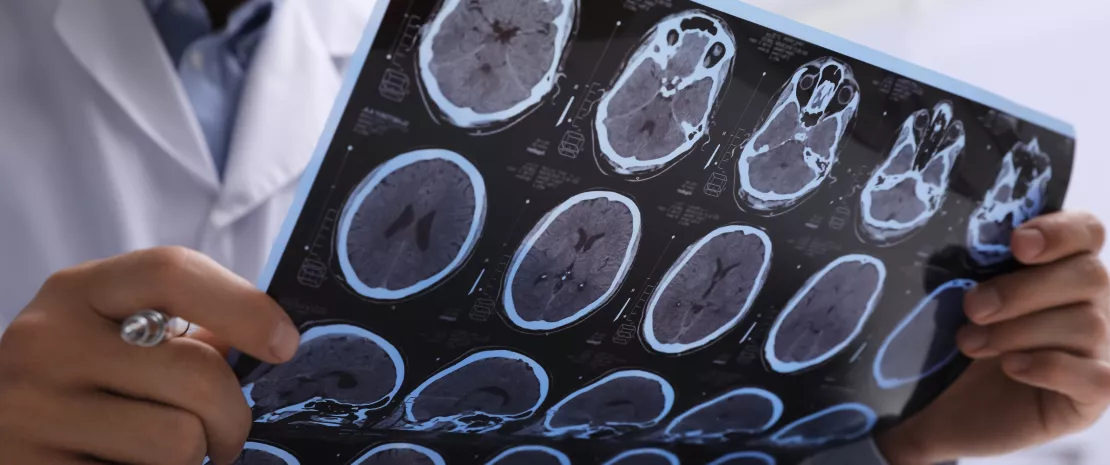Before the brain declines, the gut speaks first: Microbiome clues to multiple sclerosis progression
Before multiple sclerosis progresses, the gut may whisper its warning. New research reveals that specific microbes and their metabolites vanish years before neurodegeneration accelerates, offering clinicians a metabolic early-warning system.
Lay public section
Find here your dedicated section
Sources
This article is based on scientific information

About this article
For decades, multiple sclerosis (MS) has been understood as a disease of the immune and nervous systems, a chronic battle of inflammation and neurodegeneration. But in recent years, evidence has been mounting that the gut microbiome may be a silent third player, influencing how patients respond to therapy, experience fatigue, and ultimately, how their disease evolves. Still, one question has remained unanswered: can gut microbes actually predict who will worsen?
A new longitudinal study from Laura Cox and Howard Weiner at Harvard Medical School, published in Cell Reports Medicine1, brings us closer to that answer. Using the Comprehensive Longitudinal Investigation of Multiple Sclerosis (CLIMB) cohort, the team followed 192 people with MS over two years, pairing stool and serum metabolomics with MRI scans, cognitive tests, and quality-of-life data. Their goal was to find the microbial and metabolic fingerprints that appear just before patients transition from relapsing to progressive MS.
Gut brain axis: how your microbiota talks to your brain?
The missing microbes of stability
Among those whose disability worsened, several beneficial microbes had quietly disappeared. Eubacterium hallii, Butyricicoccus, and Blautia, all key producers of anti-inflammatory metabolites, were markedly reduced. In contrast, Alistipes onderdonkii and Bacteroides vulgatus expanded, tracking with higher MRI-detected brain atrophy and cognitive decline. Although these beneficial microbes are known to produce (sidenote: Short chain fatty acids (SCFA) Short chain fatty acids (SCFA) are a source of energy (fuel) for an individual’s cells. They interact with the immune system and are involved in communication between the intestine and the brain. Silva YP, Bernardi A, Frozza RL. The Role of Short-Chain Fatty Acids From Gut Microbiota in Gut-Brain Communication. Front Endocrinol (Lausanne). 2020;11:25. ) like butyrate, the study found no change in SCFA levels. This implies that their role extends well beyond fiber fermentation. These species may shape immune and neural signaling through bile acid conversion, lipid modulation, and vitamin biosynthesis, a more complex and far-reaching mechanism than previously appreciated.
A metabolic fingerprint of progression
In patients who transitioned to progressive MS, the gut’s chemical landscape was profoundly altered. Stool metabolites with neuroprotective potential, such as nicotinate (vitamin B3), pyridoxamine (vitamin B6), and protoporphyrin IX, fell sharply. Meanwhile, blood levels of palmitoleate and p-cresol sulfate, molecules linked to neuroinflammation and myelin toxicity, rose. Even secondary bile acids like ursodeoxycholate, known for calming neuroinflammatory cascades, were depleted.
The picture that emerges is one of metabolic silence. In essence, the microbes capable of making protective compounds, especially Akkermansia and Eubacterium hallii, fade away just as neurodegeneration accelerates. The result is a gut that can no longer send restorative chemical signals to the brain.
A clinical application?
Imagine adding microbiome screening to annual checkups for patients with relapsing-remitting MS - tracking the abundance of protective species or the loss of bile-acid producers as an early alert that the disease is changing course. This kind of “gut signature monitoring” could one day guide treatment intensity, rehabilitation planning, or nutritional interventions.
The therapeutic implications are equally compelling. If specific microbial metabolites, like vitamin B3, B6 derivatives, or secondary bile acids, act as neuroprotective agents, dietary supplementation or next-generation probiotics could restore that lost metabolic communication. The goal wouldn’t be to replace immunotherapy but to add a gut-targeted layer of
(sidenote:
Neuroprotection
The preservation of neuronal structure and function against injury or degeneration. In the context of MS, neuroprotective strategies aim to prevent the loss of axons and myelin. The study suggests that certain microbial metabolites, such as vitamin B3, B6 derivatives, and bile acids, may exert neuroprotective effects, positioning the gut as a potential therapeutic target to slow disease progression.
)
, helping patients preserve function longer.
In the coming years, as microbiome assays become cheaper and more standardized, it’s not hard to imagine a clinical future where neurologists, dietitians, and microbiome specialists work side by side, using microbial data to keep MS quiet, one gut metabolite at a time.








